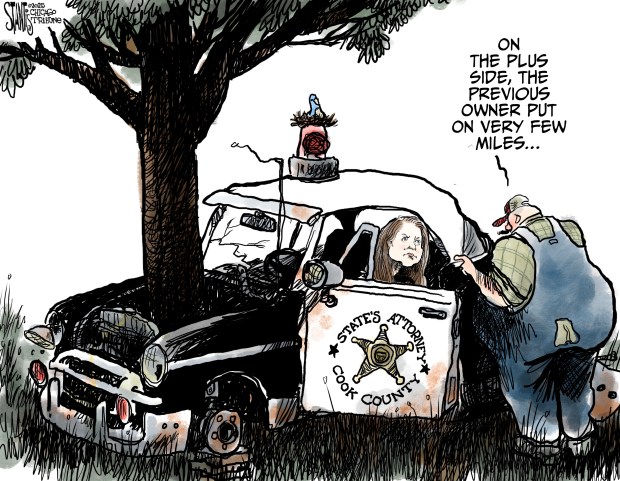Less than two weeks had passed between the gut-wrenching address Jon Polin and Rachel Goldberg gave at the Democratic National Convention and the murder late last week of their captive son, Hersh, at the hands of Hamas.
That Hersh Goldberg-Polin, 23, had survived the nearly 11 months since he was snatched during Hamas’ horrifying Oct. 7 invasion of the music festival he was attending was something of a miracle. Most of his left arm had been blown off by a hand grenade when he was taken to Gaza along with some 250 others.
His parents, both Chicago-area natives who’d settled in Israel with their family when Hersh was a boy, had spent months giving anguished, humanizing voice to the horrors of this conflict and the nearly unimaginable pain it’s caused ordinary people. Civilians purposely used as pawns in the most brutal way possible.
“In a competition of pain, there are no winners,” Jon Polin memorably said at the DNC while expressing gratitude to be returning to our “sweet home Chicago.” That is no doubt true, but Hersh’s parents, sisters and other family members, many of whom still call the Chicago area home, surely felt more pain than humans should have to endure when they heard the news that he was gone. At Hersh’s funeral service Monday in Jerusalem, it would have been difficult for any parent not to choke up when Rachel Goldberg said during her eulogy, “OK, sweet boy, go now on your journey. … Finally, finally, finally, finally, you’re free.”
Hersh Goldberg-Polin, a dual citizen of the U.S. and Israel, became the face of the hostages, both here and in the country he called home, but of course there are five other families experiencing the same agony Hersh’s parents are at the news of their loved ones’ murders.
There likely will be more misery before this war ends. More than 60 living hostages remain in Gaza, according to the Israeli military. Our hearts go out especially to native Chicagoans Jon Polin and Rachel Goldberg. You came of age here, where we live and raise our families, and where last month you reminded us so eloquently of the pain experienced every day by the families of those innocents trapped in a war of uncommon brutality, knowing well that at any minute their part in this tragedy could end the way it did for Hersh Goldberg-Polin and his family.
Submit a letter, of no more than 400 words, to the editor here or email letters@chicagotribune.com.



